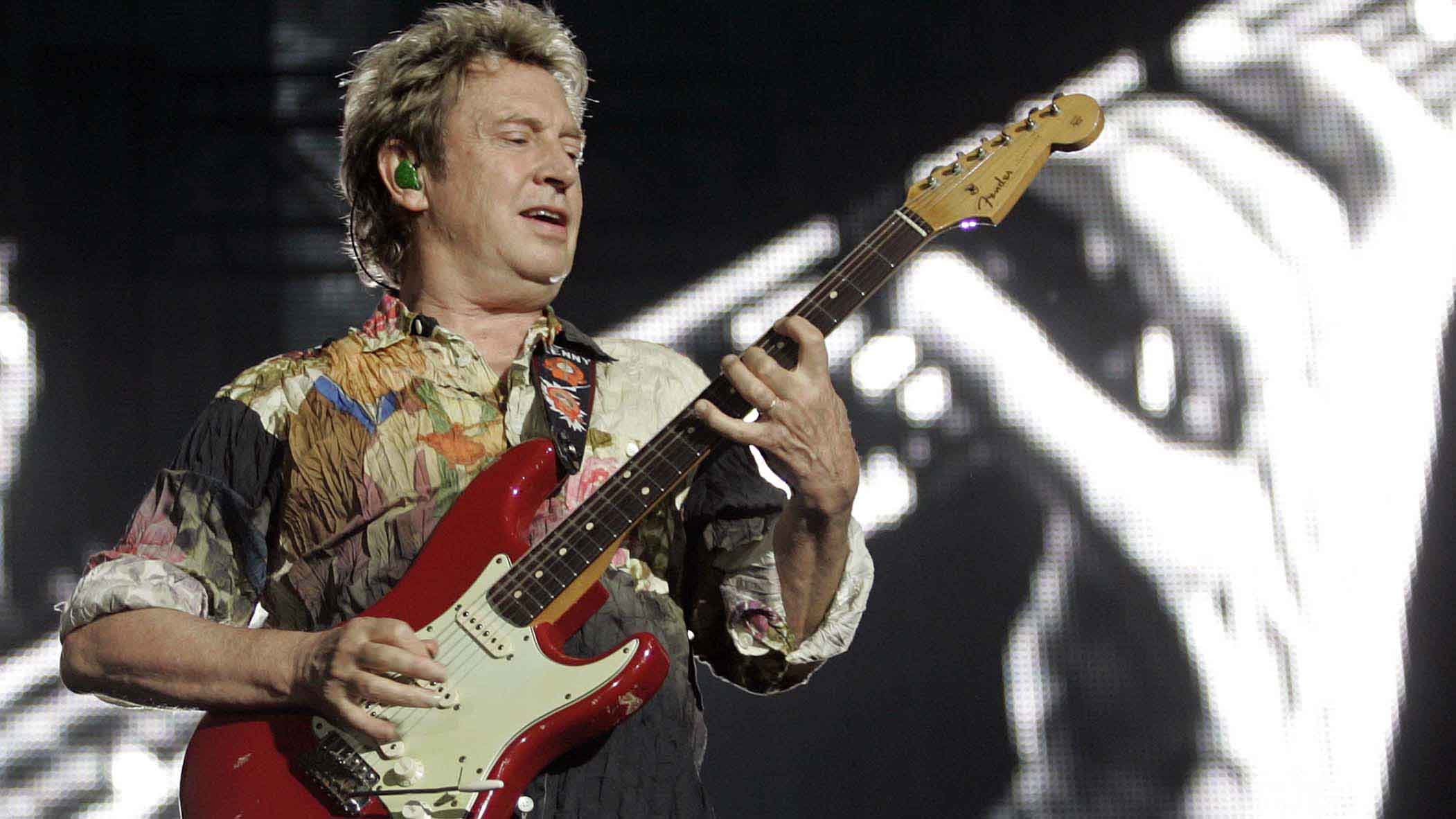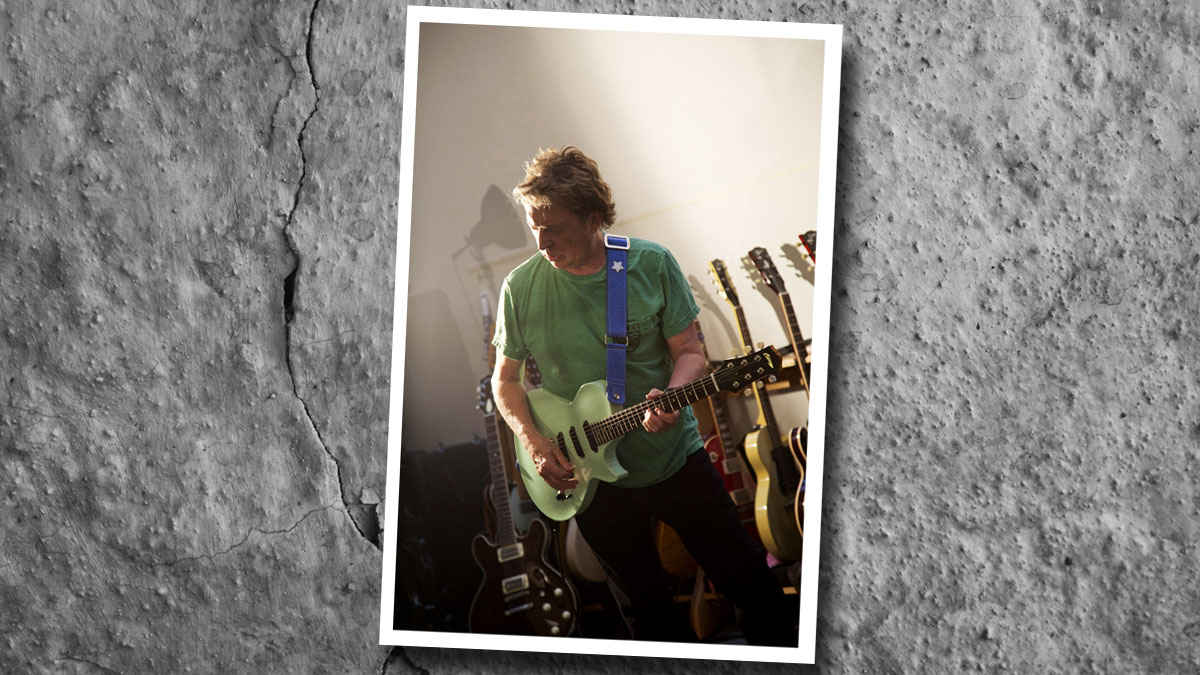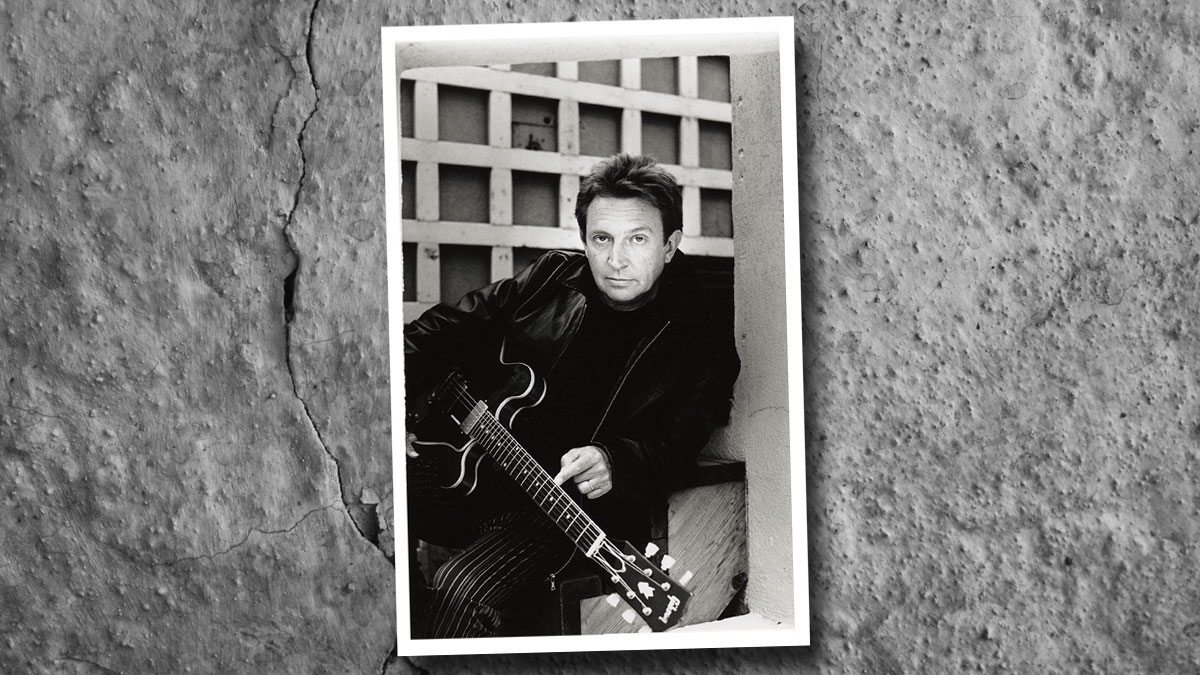Andy Summers on developing his guitar style and new album Metal Dog
The Police legend on his ear-twisting solo collection

Introduction
The former Police man is back with Metal Dog, an instrumental album that drags rock ’n’ roll to the outer reaches. “There’s a fair amount of abuse of the electric guitar going on,” he tells us. “I’m trying to create another world…”
“Keep it current,” says Andy Summers’ press officer, in our pre-interview briefing. “Don’t mention The Police. Not a word about Walking On The Moon. Keep schtum on the spats with Sting. Concentrate wholly and exclusively on his new instrumental solo album, Metal Dog…”
Compared to the pipe-and-slippers output of his peers, it’s an album that suggests Summers is still questing
Fine by us. Released on Summers’ own label, Metal Dog is the least commercial and most musically adventurous project in the 73-year-old’s back catalogue. Indonesian rhythms break into industrial distortion.
Ethereal chimes degrade into ear-drum-rupturing white noise. A quicksilver solo darts between ominous slabs of looped harmony guitar. There’s nothing to trouble the Radio 1 playlist - but plenty to enthral open-minded fans.
Compared to the pipe-and-slippers output of his peers, it’s an album that suggests Summers is still questing, regardless of whether you ride along with him. “What I’m looking for,” he says, “is a quality of disinterest in the music itself. That it just stands there like a piece of art, and it doesn’t really care who’s listening to it…”
What was the inspiration for Metal Dog?
“I was going to work with a photographer who was connected with the New York modern dance scene. We were going to create an evening of music and video for the dancers. I started into it, and my initial impulse was thinking about dancers on stage with this esoteric music. What ultimately happened was that I had about four hours of music, and the other guy didn’t come up with enough. So I decided to shape some of what I had into a CD.”
Journalists will struggle to pigeonhole this album. Was that intentional?
My point of pride, if you like, is to do stuff that doesn’t exist, that sounds like me and not like anybody else
“Yeah. They always want to say, ‘Oh, it’s R&B’ or, ‘It’s straight-ahead jazz.’ No. My point of pride, if you like, is to do stuff that doesn’t exist, that sounds like me and not like anybody else. It’s not just verse/chorus, it’s much more open than that. There’s stuff coming in from many different places that I’ve listened to in my life.
“Y’know, with Qualia or How Long Is Now, there’s a lot of exotic influences in there, like Balinese music. I’ve played for a long time, and what I’m looking to do is cutting edge and experimental. Advanced, edgy guitar.”
You’re trying to avoid guitar-hero clichés?
“Well, it’s a bit more complex than that. Some of these textures and sounds, y’know, I couldn’t have done this in The Police. It’s not some grandstanding shred record, although there are great solos on there. It’s always trying to create an atmosphere. I’m trying to build another world.”
Don't Miss
Andy Summers talks guitars, effects, The Police and his new band, Circa Zero

Instrumental fundamentals
What’s the secret to creating a great guitar instrumental?
“When you say the word ‘instrumental’, you immediately think of some melodic thing like The Ventures. This is almost like creating orchestral music with a guitar, so I think the word ‘instrumental’ is sort of wrong.
I think the word ‘instrumental’ is sort of wrong. It’s not just knocking out a 16-bar melody and maybe a guitar solo. We’re way past that
“It’s not just knocking out a 16-bar melody and a sweet little bridge and maybe a guitar solo. We’re way past that. This music is much more about creating other worlds, and all sorts of bizarre things that I’ll do with a guitar. There’s a fair amount of abuse of the electric guitar going on.”
How did the writing work?
“All of these tracks started from a sonic place. It’d either be a loop or a weird sound that I’d dig out of a couple of boxes. Then, if I can live with it, I keep building it. I literally sit on my couch in my studio, and I’ve got Pro Tools in front of me, and someone operating it for me, and I have a bunch of pedals on a little table.
“It’s almost like a painter with an easel of paints. I’ve got a fairly large battery of pedals, including all the weirdest ones I could find. I’m not a complete tech-head, but I pay a bit of attention to that scene. I did a lot with the [Z.Vex Instant] Lo-Fi Junky, which is not that new, but I like the very degraded sound.
“I’m trying to avoid straight-ahead, nice, good, bluesy guitar sounds. I’m trying to break down the sound so it’s granular, distorting, stuttering. I like to warp the sound somehow, so the voice becomes unique. So I’ll take things like the Lo-Fi Junky and I’ll either loop it - or not. I might play against the loop, which could be reversed, dropped an octave, up an octave.
People will always love the guitar and the great rock solo and the sustain… but we’ve all been listening to that for many years now
“There’s the VauxFlores Number 23 - they’re great - and I’ve got the Roland VG-99, but the primary box that I always return to is the original Eventide [Eclipse]. It’s never been beaten. I love that thing. And you can’t get it any more.”
Do you think the guitar needs the occasional shove to keep it interesting?
“I do, actually. And all you’ve got to do is go to the horror of YouTube to see untold millions doing stuff with a guitar. It’s great. Why should it just remain in one place? That’s partly what I’m trying to do with this album, is not use any standard sounds if possible.
“I mean, people will always love the guitar and the great rock solo and the sustain… but we’ve all been listening to that for many years now. I try to at least change the tone or sound of the guitar, however I can, with whatever any of these amazing new pedals will do.”
Do you think you can still identify that it’s you playing guitar?
“I don’t know. I hope so. A lot of people obviously associate me with The Police, which is a long time ago. It depends how good the people’s ears are. I think one of the things you can tell is the phrasing I have when I’m soloing. It’s something to do with initially coming out of a jazz background, and my feelings for time and space. These are the things that make a player, I think. Who has great phrasing? Who fills the time in a really interesting way?”

The sound of The Police
What guitars were you using?
“In my studio, I have about 15 guitars out on racks, but believe it or not, I mostly played one Stratocaster for everything. When we did the Police tour in ’07/’08, they made me a Telecaster, but they made me two of these Strats, which were copies of my 1963 Strat. Because there’s a lot of processing on the signal, I didn’t find a lot of need to keep whipping out guitars.
I don’t need to do this. I do this because I feel very much that I’m a living artist and I need to create
“Occasionally, I’ll pick up a Les Paul if I want to go to a certain place on a solo. If I’m gonna go for a very specific type of pickup sound, I might use an old Gibson 330.”
Did you use a traditional amp?
“Occasionally, not all the time. I’ve got a few vintage Fender amps in the studio, and I’ve also got a Carr, which has a pretty bluesy sound.”
Do you care how Metal Dog sells?
“Well, not really. We’re in a very different place with selling records. I’ve been lucky in my career: we’ve sold over 80 million records. I don’t need to do this. I do this because I feel very much that I’m a living artist and I need to create.
“I still want to make CDs and let people know that I’m creating. It’s not over yet. And I don’t want to do anything old. I want to do very new, very creative music, and if it finds an audience, that’s great.
“Of course, it matters to me. But I’m not like, ‘Oh God, I’ve got to do every interview in the world to get it [out there].’ No, I’m very picky about what I’ll do. There’s no commercial pressure on me. And I think you get better music for it.”
We’re not meant to mention The Police. But do you think you’re a different guitarist from the Andy Summers who made 1978’s Outlandos D’Amour?
“The truth is that Sting and I had a very similar background, musically. We basically came from jazz, but had also been touched by The Beatles and blues. We liked the music of Brazil and all the rest of it. But we couldn’t play that kind of music. We had to be a rock band. In fact, we were a punk band at the beginning, which was laughable.
I would say I’m just much more advanced. I’ve just learnt a lot more shit since I was in The Police!
“I had been to college in America, I’d studied classical guitar for years, I’d done a lot of playing. I was pretty formed by the time I got to The Police, but that was the framework and this is what we had to do. I’ve never stopped studying and playing, I’ve never given it up. I’ve never felt any need to. So I would say I’m just much more advanced. I’ve just learnt a lot more shit since I was in The Police [laughs].”
What’s your relationship with those Police guitar parts?
“I think they were very different. Again, it comes out of the same sensibility that’s operating now. None of us wanted to sound like every other punk band in town. And what emerged, organically, is the sound of The Police.
“I’m very pleased with those guitar parts and, of course, I’m proud of The Police. Who wouldn’t be? But just to set the record straight, I don’t get up every morning and think, ‘Oh God, I’m proud of The Police.’
“It was one of the coolest bands of all time, let alone one of the most successful. But you can’t just go on living there. That’s not interesting to me. I have to move on and make the kind of music I’m making right now.”
Don't Miss
Andy Summers talks guitars, effects, The Police and his new band, Circa Zero

